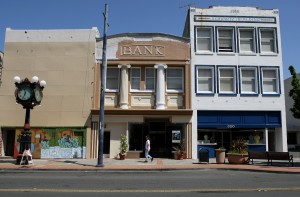by Lauren Bénichou
The Vallejo City Council is set to vote Tuesday on a series of projects -- from streetlights to senior centers -- that were chosen directly by nearly 4,000 residents last month. These projects came about as part of the city's adoption of a new civic model called "participatory budgeting." The items up for a vote, totaling about $3 million, represent a small chunk of the city's budget. But Monica Tipton, who volunteered as a budget delegate, said even that small amount wasn't so easy to grapple with.

“I learned that all those people that I was like, ‘Oh my God, they make such stupid decisions, why don’t they do this, this and this…?’ I know now why they don’t do this, this and this," she said. "It’s a tough process.”
Participatory budgeting is a new twist on an old theme, dating back to New England town meetings. The model Vallejo adopted was developed in Brazil in the 1980s, and it's been picked up in places like Chicago, New York and San Francisco.
Professor Larry Rosenthal, from UC Berkeley's Goldman School of Public Policy, said people have been thinking about direct democracy for years. “What differs here is that a city like Vallejo or wards in Chicago have actual resources," he said, "and the person who was in control of those resources, or the agency, makes a decision that they no longer wish to exercise discretion in the first instance about how that money gets spent. Instead, they want the community to decide.”